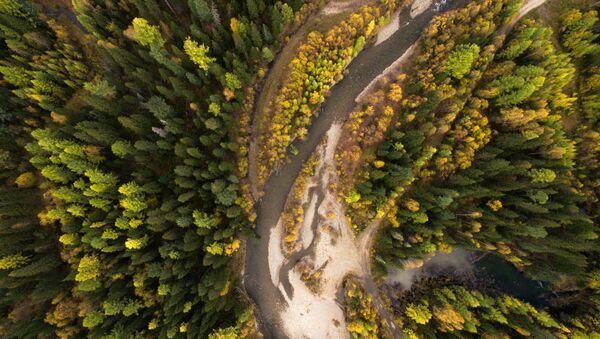Russia's climate may change for the worse in the years to come, which will be fraught with serious consequences, Russian scientists have cautioned in a recent study published on the Agricultural and Forest Meteorology website.
The conclusions were made by researchers from the Siberian Federal University (SFU) and the Sukachev Forest Institute who specifically explored processes of sap flow in the trunks of larch and pine trees; the scientists predicted that global warming may finally lead to a situation when the pine will replace the larch in its usual habitats in Siberia.
Given that Siberia remains the largest forest area in the world, the pine-larch replacement will likely lead to far-reaching repercussions, not least massive floods, according to the study.
"It is safe to assume that Siberian forests will eventually look like the Scandinavian ones, where permafrost is a small percentage of the territory, and where pine and spruce are not uncommon”, Josef Urban, assistant professor at the SFU’s Department of Ecology and Nature Management, pointed out.
He added that pine is also starting to replace larch at the lower border of forest, where the steppe begins because the larch cannot compete with pine in new climatic realities.
Urban noted that a similar process is also currently in place in the mountains, something that he said “takes place not only in Siberia, but also in the Alps”.
In his opinion, the current changes in the species composition of Siberian forests will undoubtedly have global consequences.
"Experts from an intergovernmental panel on climate change point out possible effects of global warming: gradual reduction in larch forests, change in the ratio between heat and energy flows as well as significant changes in moisture volumes available to plants. So we can witness [in the future] an increase in the number of extreme natural events - for example, floods”, Urban said.
He explained that this may occur due to the fact that the river flow will increase as a result of the redistribution of precipitation during the year.
In this context, Urban suggested that slowing down global warming could hamper the large-scale process of replacing larch forests with pine trees and ultimately mitigate environmental consequences.
He remained downbeat about efforts to stop the pine-larch replacement process, saying that this will be a tough nut to crack.




